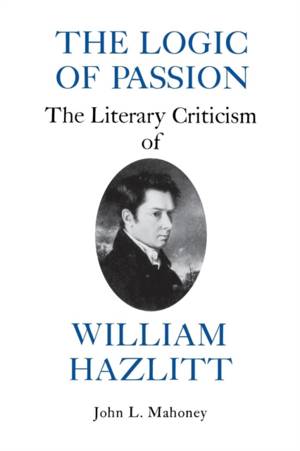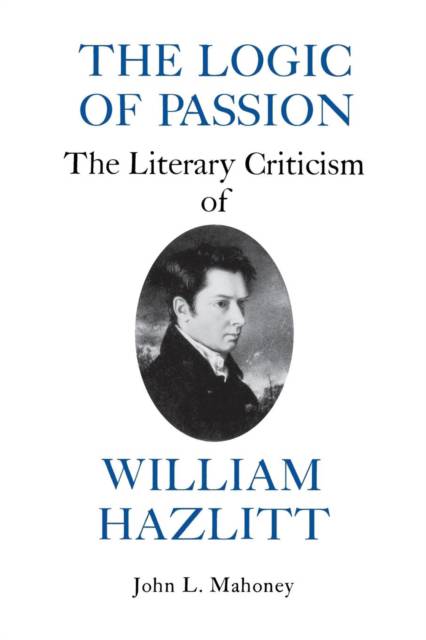
- Retrait gratuit dans votre magasin Club
- 7.000.000 titres dans notre catalogue
- Payer en toute sécurité
- Toujours un magasin près de chez vous
- Retrait gratuit dans votre magasin Club
- 7.000.0000 titres dans notre catalogue
- Payer en toute sécurité
- Toujours un magasin près de chez vous
The Logic of Passion
The Literary Criticism of William Hazlitt
John L Mahoney
Livre broché | Anglais
53,45 €
+ 106 points
Description
Hazlitt is easily the most representative of the major British critics writing during the period of 'High Romanticism' (1790-1830), as well as one of the two greatest...No other critic is so central and in so many ways...The Logic of Passion is a book that distils over twenty years of thinking not only about Hazlitt but also about three more general subjects without which a first-class book on Hazlitt as a critic could hardly be written. (1) The English romantics generally; (2) what is rarer, in our academic specialization, a grasp of the eighteenth-century intellectual (and critical) legacy; (3) what is still rarer, a knowledge of the history of criticism as a whole...Professor Mahoney's credentials are impeccable. He has taught and written in all of these fields - English romanticism, the eighteenth century, and the history of criticism. His book is therefore rich in what is usually called 'background.' Yet his learning is carried lightly, as befits a mature scholar who is distilling a complex subject without confronting us with the fatigues of self-display and nit-picking. With the sureness of authority, he moves quickly and cleanly to the essentials. His method is rightly thematic rather than chronological...Professor Mahoney is able, without tedious length, to give a truly comprehensive interpretation...Professor Mahoney's Logic of Passion is one of those rare books one can warmly recommend both to the beginning and the advanced scholar. For its clarity of style and structure, its pace and verve make it as readable as any discussion of any major critic I have encountered. Yet...the subject is so richly nuanced that the mature scholar of both romanticism and the history of criticism will time and again see the implications with a union of freshness and penetration, 'herrlich, ' as Goethe said, 'wie am ersten Tage.'
Spécifications
Parties prenantes
- Auteur(s) :
- Editeur:
Contenu
- Nombre de pages :
- 125
- Langue:
- Anglais
Caractéristiques
- EAN:
- 9780823210749
- Date de parution :
- 01-01-81
- Format:
- Livre broché
- Format numérique:
- Trade paperback (VS)
- Dimensions :
- 152 mm x 229 mm
- Poids :
- 208 g

Les avis
Nous publions uniquement les avis qui respectent les conditions requises. Consultez nos conditions pour les avis.






